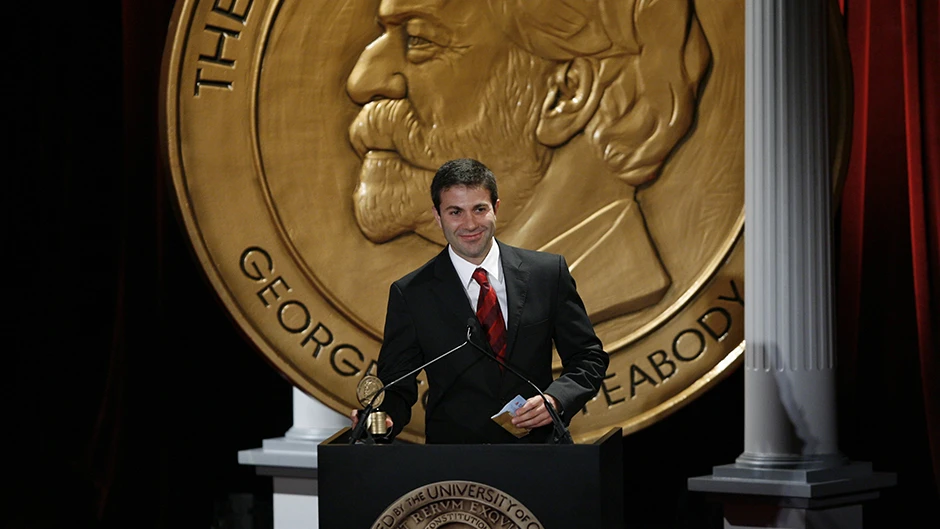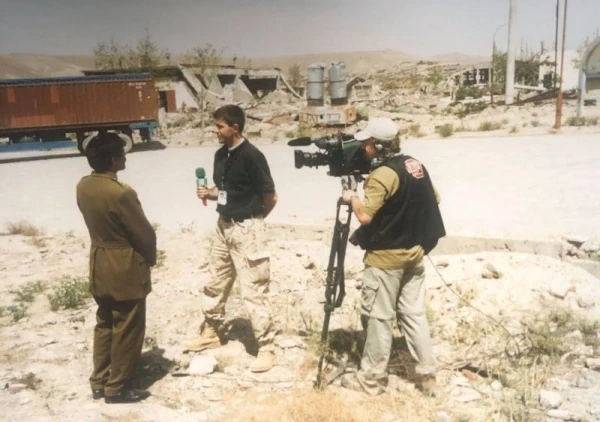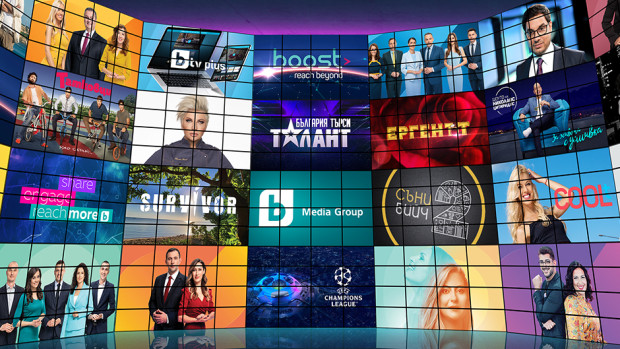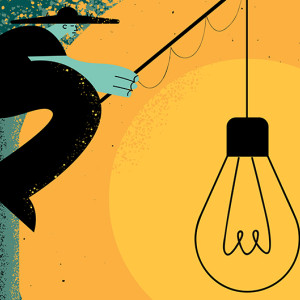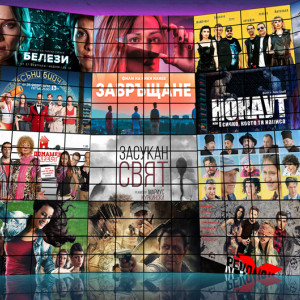You celebrate 20 years of bTV News in the year of a growing pandemic. How do you manage in this situation?
We have an emergency team duty schedule. Reporters, hosts and producers take turns rotating every other week. International editors, web editors and graphic designers work in part or in full from home. We carry out planned measures for disinfection of the premises - twice a day, partial during the working day and complete disinfection of all premises after the end of our last broadcast every night. Wearing masks in the premises and company cars is mandatory. We have introduced strict quarantine and testing of all colleagues in contact, as well as those who have been at risk. The measures have been in place since the beginning of the pandemic in March. We are prepared for all possible scenarios, including a full evacuation. So far we have no crashes on the air, or critical situations with colleagues. In practice, due to the measures we work with limited capacity, but the goal is to protect people's health without stopping the work of the editorial office.
You sent your own teams to cover the election in America. Why is it important to have your journalists on site when the world's agencies provide so much information?
Agencies provide statistics and other information of interest to a global audience - their clients from around the world, including us. Everyone has access to this information, including our competitors. Our teams searched for and presented first-person information, designed specifically for the Bulgarian audience. Their presence made our coverage of the US presidential election unique and personal. Colleagues were equipped with live streaming devices. Thus, the events overseas were broadcast live in Bulgaria. Last but not least, people are always looking for a narrator and a story, not just information. Two of our best storytellers worked for that in the USA - Teodora Trifonova and Rosen Tsvetkov.
What has changed in your work since the introduction of the high-tech studio last year?
The new studio allowed us to modernize and style all the shows we produce. Although each of them has its own identity, thanks to the studio and the new graphic elements, each one carries the spirit of the editorial office. This sets the same criteria for work in all programs and gives the same guarantee of quality to our viewers.
The new studio is also a platform that allows us to develop and experiment with years to come. What we have created is comparable to the process of developing a combat aircraft - mechanical construction, engines, avionics, armament. In aircraft construction, the mechanical structure is expected to withstand many years of modernization and development of all other components. We created the mechanical construction and equipped it with the latest generation of systems - augmented reality, graphics management software. What engines and "weapons" we can add over time, we will decide when they appear on the market and we conclude that they would be useful to the audience.
What is the interaction between your teams working for the various news programs and current affairs programs, for the website, for the radio stations?
This is basically one team. The key to success is in the integration of people and content. It does not make sense for one reporter to do a report for a newscast, another to do a report for a program, and a third and a fourth to do reports for the web and radio. We've come a long way to get everyone used to the idea that the team is responsible for all programs and platforms, not just a specific newscast or program. The modern professional in audiovisual journalism is expected to be able to work on air, on the web and on the radio. Technology makes this easy. A desire for development and continuous improvement is needed. For example, a colleague who covered a protest in the center of Sofia knows that he has a commitment to join live on BTV Radio. He also knows that he has to do a live feed on Facebook in the profile of btvnovinite.bg. He needs to send photos, videos and information about the site, and several times in the process of developing the situation. And all this happens before the reporter appears on any televised newscast. There must be live coverage and reporting for the newscast. This requires multi-functionality out of the reporter, the cameraman, the producer in the newsroom.
What has changed in general in bTV News for the last 6 years, when you headed the editorial office?
Six years ago, we started the process of integrating shows and platforms. The bTV News has long been more than just a newscast on television. No one is just working for "the 7 o'clock newscast" anymore. Colleagues publish and broadcast journalism where our viewers are looking for it - on television, online and on the radio.
This year has been marked by numerous attacks on bTV, your reporters, you personally, at the same time confidence in bTV is increasing. Does this mean that viewers have learned to sift the truth from the fake news?
The constant "volleys" against us are impressive - both from the yellow media and from politicians. We started filing defamation and damages lawsuits against some of them. Obviously, strong, independent journalism prevents many people from committing lawlessness. That is why the resistance against us is so strong. We must not forget that the stake is not the fate of a group of journalists, of a guild or a company, but the whole of society. Therefore, the fight against lies must be total, regardless of their source.
The best way to combat fake news is to produce real news. Journalism, created on the basis of classic professional principles, creates trust and expectations. The more, the better for everyone. And vice versa - if real journalism is missing, lies, rumors and conspiracies abound.
The most important elections in the country are approaching - the parliamentary elections. How do you distinguish authentic viewer signals and topics from the signals that come to you to serve someone's agenda?
All signals that come to us are subject to detailed verification. I have to approach each signal with a great deal of doubt, because the sources have increased dramatically. Since social networks hit the Internet, dozens and often hundreds of signals have been pouring in every day. Unfortunately, many of them turn out to be fake, and some are quite cleverly disguised political manipulations.
How has the coverage of sports news changed and developed in the last few years? Especially after COVID-19 completely changed the world of sports.
For a while, sports literally stopped. Something unthinkable happened - in the same summer, both the Olympics and the European Football Championship were postponed. The fate of these key sporting events is not yet clear. Some tournaments began to be played under strict restrictions and without an audience, others were postponed. In any case, until the threat of COVID-19 infection disappears, sports will not be revived to the levels we remember from last year. In the first phase of the spring pandemic, colleagues from the sports department focused on the athletes' attempts to train at home due to the imposed restrictions. We are now following the sporting events that have returned, but we have added mandatory COVID tests before the trip and after the return to the work of the teams.
Along with the established hosts and reporters of bTV in recent years, many new faces have appeared in your editorial office. How do you discover new talents for the newsroom? Is there a problem with the staff with you, as in almost every sector?
We are looking for our new colleagues with the help of our internship program. It has been operating for over 15 years. Thanks to it, a large part of our younger colleagues have become part of the editorial team. Every three months we hold competitions and give students a chance to work with us. It remains our responsibility to help them find their way and learn a trade.
Since its inception, bTV has always been owned by international companies. Does this have anything to do with the independence of your editorial policy? What are the benefits?
It is crucial that the company's property is not tied to political or economic players. Such a commitment would create dependencies that are detrimental to viewers' trust. With us, editorial independence is one of the foundations of the company. There is no intervention by the management in making decisions in the editorial office, in the selection of topics or guests. In order for a private media company to work well and earn both money and trust, the basic principle is the division between business and editorial policy. Any attempt to mix would immediately lead to a loss of confidence and, in the long run, to a loss of business. I am happy that the owners of BMG see the importance of providing independent and objective news.
To what extent does freedom of speech depend on media ownership and to what extent on the journalists themselves?
The main function of journalism is to bring about social change. This is possible only by accessing the result of the work of journalists to as many people as possible. Only mass media, such as a national television station, can provide such access. If the owner of a mass television or television group has addictions, then the work of journalists on a particular topic will not reach the public and accordingly there will be no change. That is why it is crucial for mass media owners to be independent companies. Only this can guarantee the success of the journalists working in them. And success is measured by the social change achieved.
What will you remember from the first years of bTV and from the period when you were a news anchor and producer of documentaries?
Working on each report is an opportunity for the reporter to learn something new, often completely unexpected. In the production of a documentary, this is even stronger. In this sense, the news from the studio is very limiting. I keep a lot of memories and lessons from my work as a reporter and documentary filmmaker and very few memories from my work as a presenter. The journalist's place is mainly outside the studio. The more often he is in the field, the better.
How has your profession changed in the last 20 years?
The principles of the profession remain the same. The platforms, the technologies, the type of sources are changing. We are already working on several platforms at the same time, not just one feed. Already a potential source of information is each of our contacts on social networks, not just a person we know personally. We are already working for people with devices who are waiting for fast news. At the same time, societal change comes from slow news - investigations, long-term and in-depth analysis. A slow and detailed investigation has the power to blow up the public, to captivate the audience for hours in front of screens on both television sets and smartphones. An example of this is the investigation of Maria Tsantsarova on the cases with HelpKarma in recent weeks. In short, the speed of work has increased, but the horizon has also increased. At the same time, the importance of what we do has increased and expectations of us have increased.
For you personally - what were the biggest challenges in this period?
The biggest challenge is the integration of teams and platforms, because it involves the transformation of thinking. It is difficult to explain to a person who claims to be a "television journalist" that this concept already has new content. Unexpectedly, it is also difficult to explain that the phrase "I'm working for the central newscast" is tantamount to professional suicide - because more and more people will look for the journalist's job elsewhere, much earlier. All colleagues should know that working on several platforms at the same time is a matter of professional survival, not technological fashion. The audience has high expectations of us, and technology offers new opportunities.
What will television news look like in 5 years?
The concept of "television news" is very outdated. It involves linearly watching a show on a fixed-time television set. However, we should not write off this linear broadcast yet, because in addition to informational value, it also has emotional significance as an everyday public event. In this sense, television news is the only remaining opportunity for community empathy for the entire nation. The television hour between 19:00 and 20:00 is the time when a large part of the population experiences the same emotions, witnesses the same twists and turns and learns the same facts. The power of this event and its significance will remain with us for a long time. At the same time, the importance of video news in various forms on mobile platforms will increase. If the main show has the status of an everyday event, the news on the Internet is more of a process. Some of them may culminate in TV shows, but more and more will live their own lives on the Internet and develop there. The important thing is that this news reaches a critical mass of people. It is also important that this news is journalism, not just information. Only in this way will we ensure that, regardless of the platform, we will continue to fulfill our vocation as journalists - to provoke social change.
